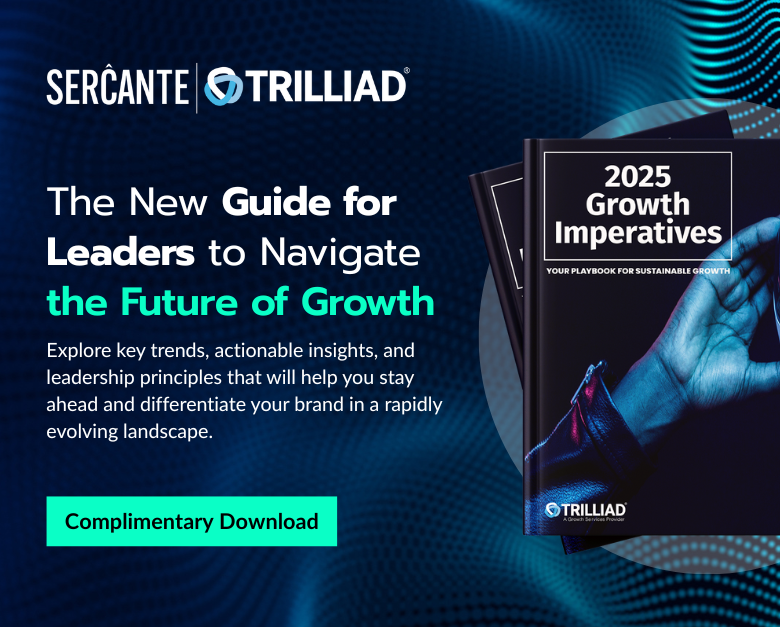It’s official — Pardot is going to be called Marketing Cloud Account Engagement going forward.
This is a big, bold change.
I have a lot of respect for whoever did the work on this rebrand, and whoever ultimately had to push the button and make the final approval on these changes. Having been a part of several corporate rebrands, I have a tiny peek at how much work goes into that.
Time and Twitter will tell how the new names land. Like most things — there are both pros and cons for this change. I suspect there will be a lot of strong opinions on both sides.
Quick background on the Marketing Cloud name changes
Here are the latest name changes affecting marketers who use Salesforce:
- Marketing Cloud Email Studio (aka ExactTarget) 🡪 Marketing Cloud Engagement
- Pardot 🡪 Marketing Cloud Account Engagement
- CDP 🡪 Marketing Cloud Customer Data Platform
- Interaction Studio 🡪 Marketing Cloud Personalization
- Email, Messaging, and Journeys 🡪 Marketing Cloud Engagement
- Advertising Studio 🡪 Marketing Cloud Advertising
- Datorama 🡪 Marketing Cloud Intelligence
- myTrailhead 🡪 Salesforce Sales Enablement
- Salesforce CMS 🡪 Digital Experiences
Get all the details on the recent Salesforce product name changes here.

What I like about the name changes (particularly the Pardot one)
Let’s start with the good stuff.
1. It sets a vision for the connection between Salesforce products
The new naming conventions for the Marketing Cloud suite of products emphasizes that these products are part of the same family.
Salesforce has made a large number of acquisitions in the martech space, and retaining the individual brand names dilutes the message that they’re all one platform. A unified naming system simplifies the message for the existing stack, and makes it easier to name and talk about future additions.
2. It aligns with marketers’ big picture needs
Marketers need more than a pile of point solutions.
They have a vision, and they need infrastructure to execute on that. This line in Salesforce’s announcement about the change stated it perfectly:
“As you consider how to make the wow moments that build customer trust and loyalty, we know you’re focusing less on one channel or technology and more on the full experience. Our job is to deliver the how behind the wow.”
This shift also mirrors a recent change that we made in the positioning of this blog. We announced a few weeks ago that “The Spot for Pardot” is becoming “The Spot” and broadening its focus to a broader subset of martech — and this need is exactly why.
3. It focuses on what the products actually DO from a customer’s perspective
If you already know what Pardot is, you know what it does and what problems it solves. If you already know what Datorama is, you know what it does and what problems it solves.
But no one is sitting around saying “I need a Datorama.”
They’re saying: “I need actionable business intelligence.”
Putting the names in the customer’s language simplifies the message, in some cases, on why a particular product is the solution of choice for a particular business challenge.
4. It makes it clearer that Pardot + ExactTarget play nice in the sandbox
For whatever reason, Pardot and ExactTarget have often been viewed as “competing” with one another. People liked to compare features, list pros and cons, and generally viewed it as a “this or that” choice.
Really, the products both send email, and that’s about where the similarities end. They are totally different tools, designed for totally different customers, with totally different admin experiences.
Using Sercante enterprise customers as a sample, I’d estimate about half use both ExactTarget and Pardot in different subsets of their business. Having both ensures their marketing teams can run fast and solve hard problems for the business.
(Somehow in this “either or” narrative people seem to forget that’s why ExactTarget actually bought Pardot before Salesforce scooped them both up. Clearly their founders recognized they were better together than they are apart.)
4. It’s easy to pronounce!
First, at least people will pronounce the new name correctly. Goodbye, Par-dough.
Silver linings, guys.
Some challenges with the rebrand
Now, for a gentle critique.
1. It’s going to be hard to unstick the legacy brand names
My friend’s mom decided she wanted to be called “Grand-mère” when her daughter brought little humans into the world.
Her grandchildren decided she was, in fact, “Lulu.”
Why? Not a clue.
But it stuck.
Take it from the 2 year olds: it’s really hard to tell people what to call you.
The ExactTarget brand was “sunsetted” ages ago. But people still call it that today, mostly for disambiguation with Marketing Cloud. It was rebranded Email Studio. Then Messaging & Journeys (kind of.) Now it’s “Engagement.”
Jury’s out on how Pardot customers will react to this change.
2. It’s going to make things harder to talk about
While the new naming system does have a unified nomenclature, it looks clean and sharp on a slide deck, it messages the right things from a customer perspective…
…it’s going to make the products really hard to talk about.
Take Salesforce Personalization for example. Formerly known as “Interaction Studio,” Salesforce Personalization provides a category-leading experience for AI-driven personalization in cross-channel marketing campaigns. It can be used alongside both Marketing Cloud or Pardot (see also: 3 Interaction Studio Features Marketers Should Look Out For from our Pardot conference last year.)
But labeling it with the generic word “Personalization” makes it really hard for people (customers, colleagues, the community, etc.) to know what you’re actually referring to.
Because you can personalize content with Pardot using handlebars merge language, dynamic content, or legacy variable tags. You can personalize content in Marketing Cloud with AMPscript or personalization strings. And we call those things “Personalization” too.
I don’t think it’s super clear in the current naming system that “Personalization” is its own thing that requires a separate SKU on your Salesforce order form and requires its own implementation.
3. “Account Engagement” doesn’t reflect the needs of all Pardot customers
“Account Engagement” implies a go-to-market model where sales reps are identifying target accounts and getting after them, and marketing is complementing those efforts through an ABM strategy.
That reflects the use case of some customers, for sure.
But many others use Pardot differently. They use it to communicate with students and donors. They use it for community engagement. They use it for recruiting and internal comms. And Pardot is pretty darn good at those things. The new name doesn’t jive with this.
4. It makes talent acquisition more confusing
If I see “project managed Pardot implementation” or “reported on KPIs to stakeholders using Datorama” on a resumé, I have a pretty clear vision of what that person did and what they can do for my company.
If you take away the OG brand names, it sounds like nonsensical fluff. Project managed Account Engagement? Reported on KPIs to stakeholders using Intelligence?
This is going to need some work.
5. It makes finding a partner more confusing
The AppExchange made a change to its filters a few days ago, presumably to align with this change to remove “Pardot” and “Datorama” from their filter criteria:
Expertise implementing one part of Marketing Cloud does not always translate to other parts of Marketing Cloud. In the short term, I think this change to the searchability of the AppExchange is going to really damage the ability of customers to find and vet qualified partners.
In the long term, I think we will see an increased emphasis on partners growing to support across the entire Marketing Cloud. But that will take some time.
6. It makes Googling your way to success more confusing
What do you search if you’re looking for Pardot help in the future?
“Marketing Cloud Account Engagement Tips for _______” is almost certainly going to turn up a lot of irrelevant content.
I have a lot of faith in Google, but it’s going to be tricky there for a while.
How I expect the Pardot community to respond to the name change
The Pardot community is going to full-on rebel in the wake of this name change.
Mostly kidding.
I think a decent subset of Pardot customers, consultants, and long-time users will see the intent of what Salesforce is trying to do with the naming update and get on board.
I also think a decent subset of Pardot customers, consultants, and long-time users will call it “Pardot” until their final days.
Remember back in 2019 where Salesforce tried to force a name change of Pardot User Groups to “B2B Marketing User Groups”? Yeah, they’re still called “PUGs.”
The Spot has several digital community hubs to rebrand following this change:
- Pardashians community | Slack home of Pardot lovers and learners
- The Spot for Pardot Jobs | The place to find Pardot gigs
- ParDreamin’ | The virtual event bringing together the best minds in martech
More to come on those after the dust settles from this announcement.
The bottom line
I believe in the “why” behind the Pardot name change 100%. I appreciate that Salesforce is aligning with customer needs and meeting them where they’re at when they’re talking about their business challenges.
I have faith that Salesforce is going to work on the details and logistics of what this means to customers to make this a net positive at the end of the day. There will be some bumps in the road. And many people will hold on to the Pardot name. And it will continue to help marketers kick butt and take names with engaging their audiences in a scalable way.
What’s your take on the name change?
I’m dying to hear what ya’ll think of this renaming. Are you for or against? Spicy feelings?
Drop a comment with your opinion and let’s discuss.












